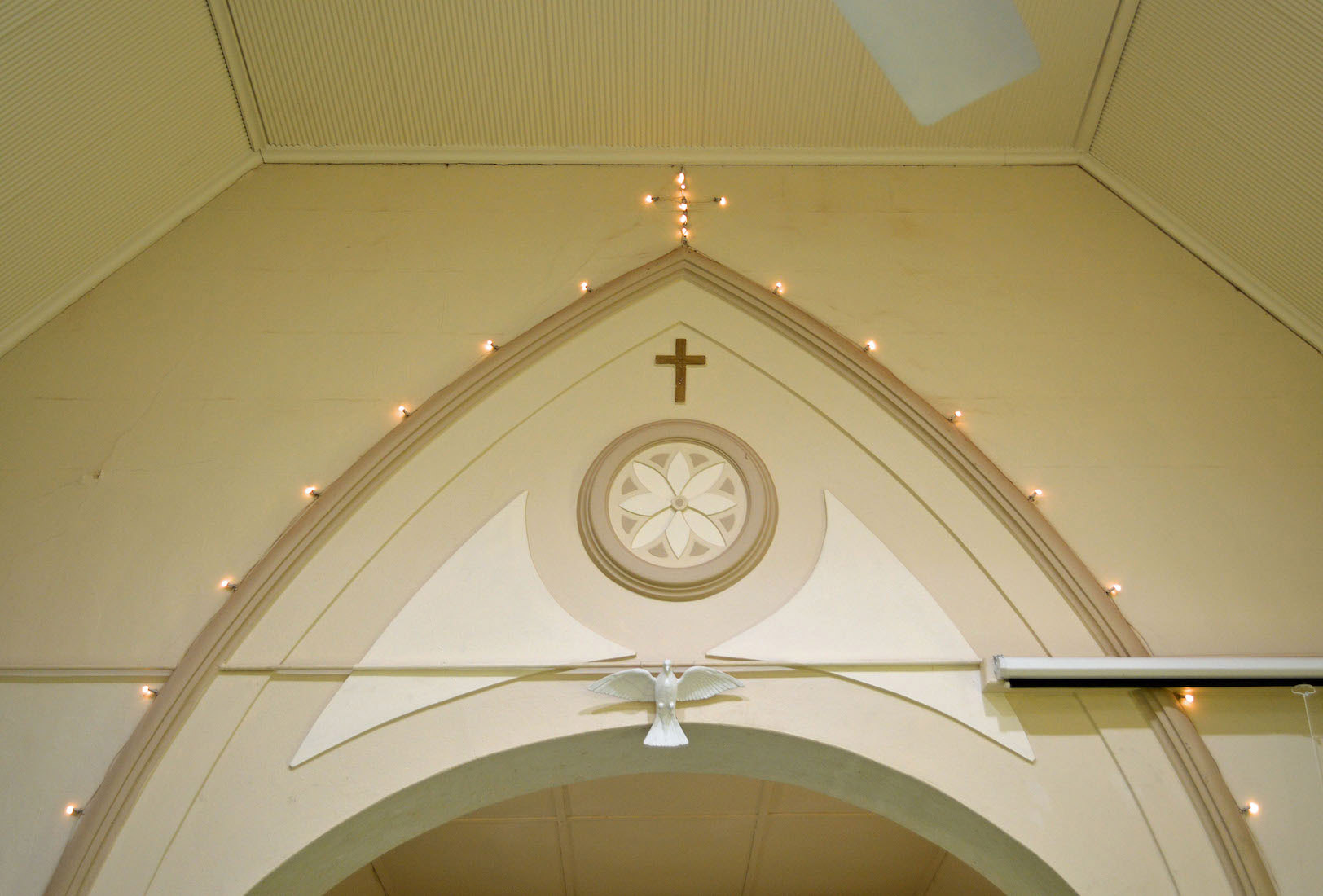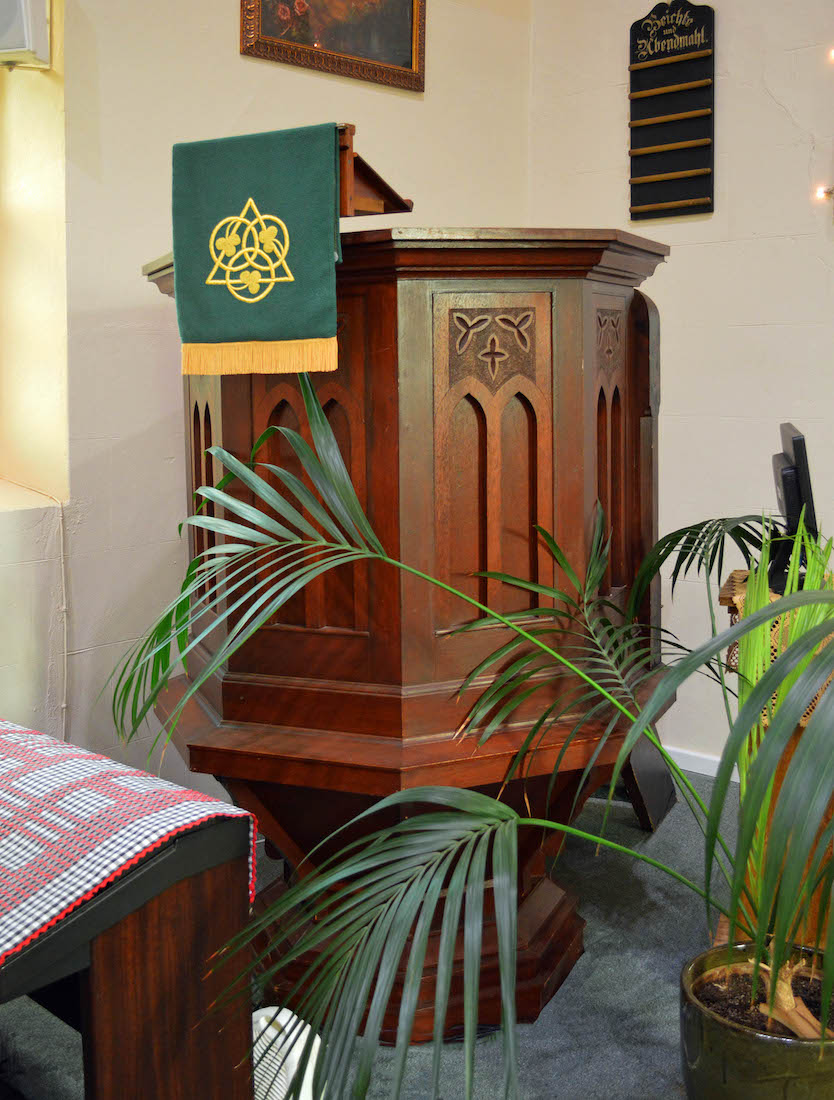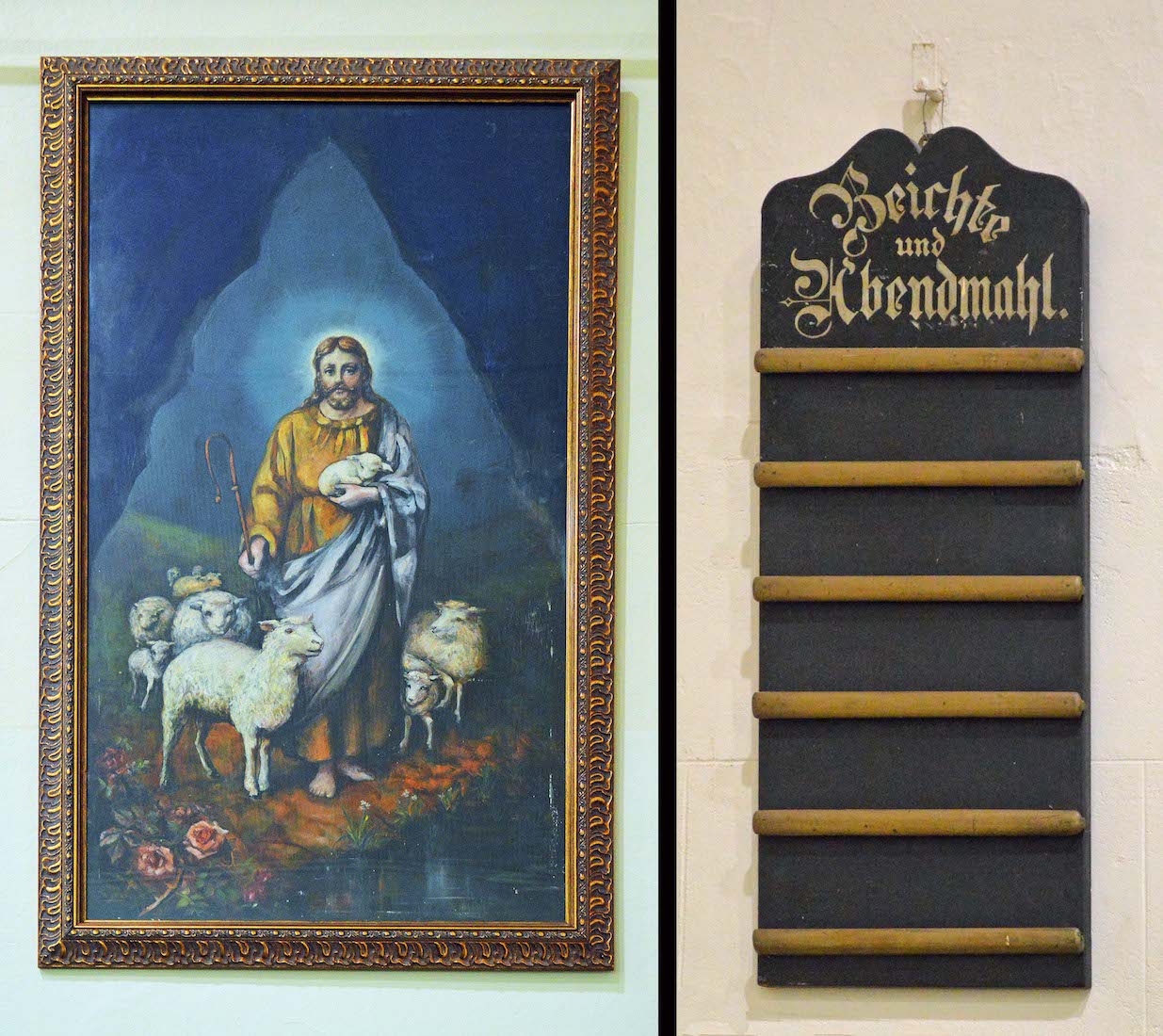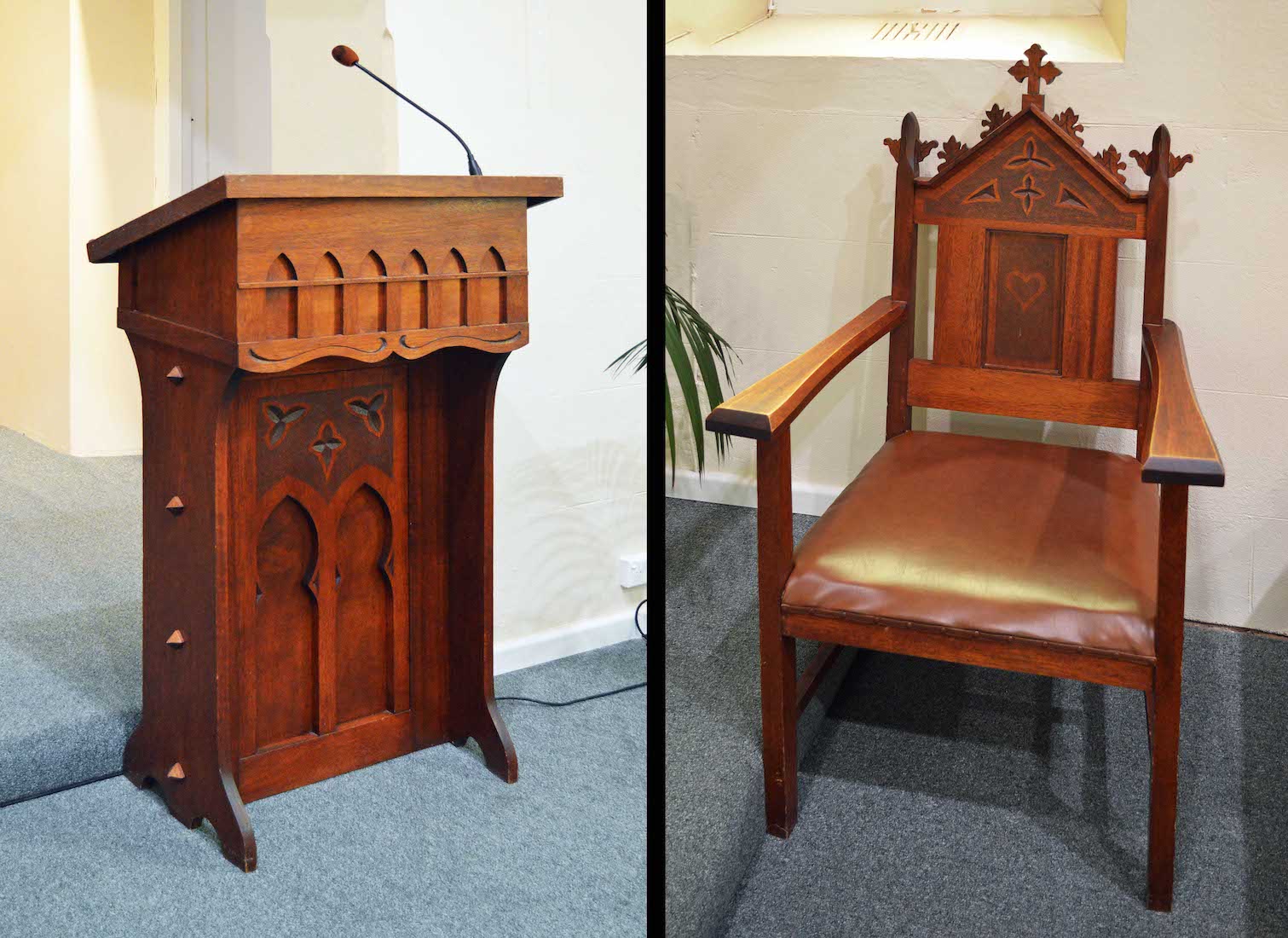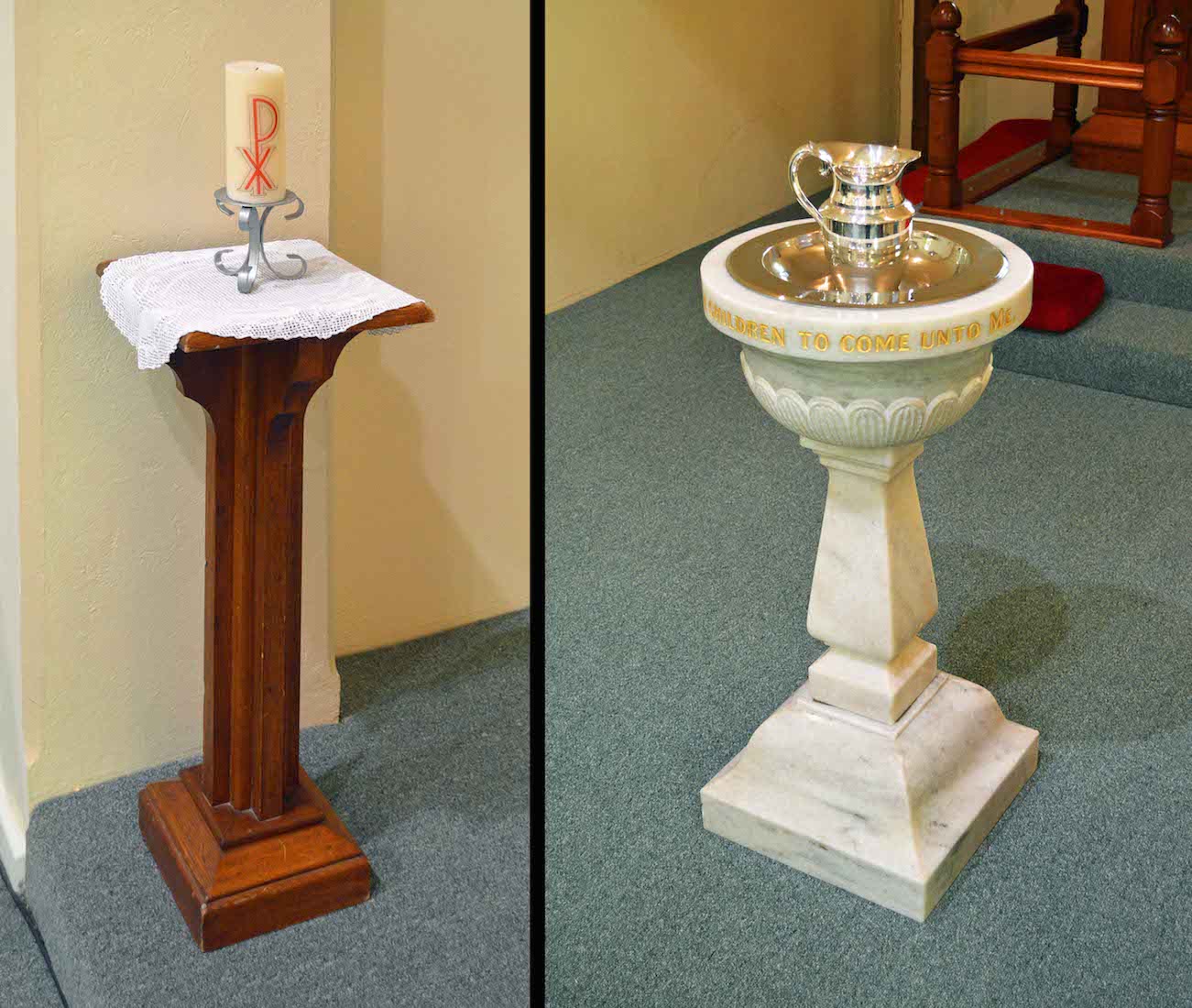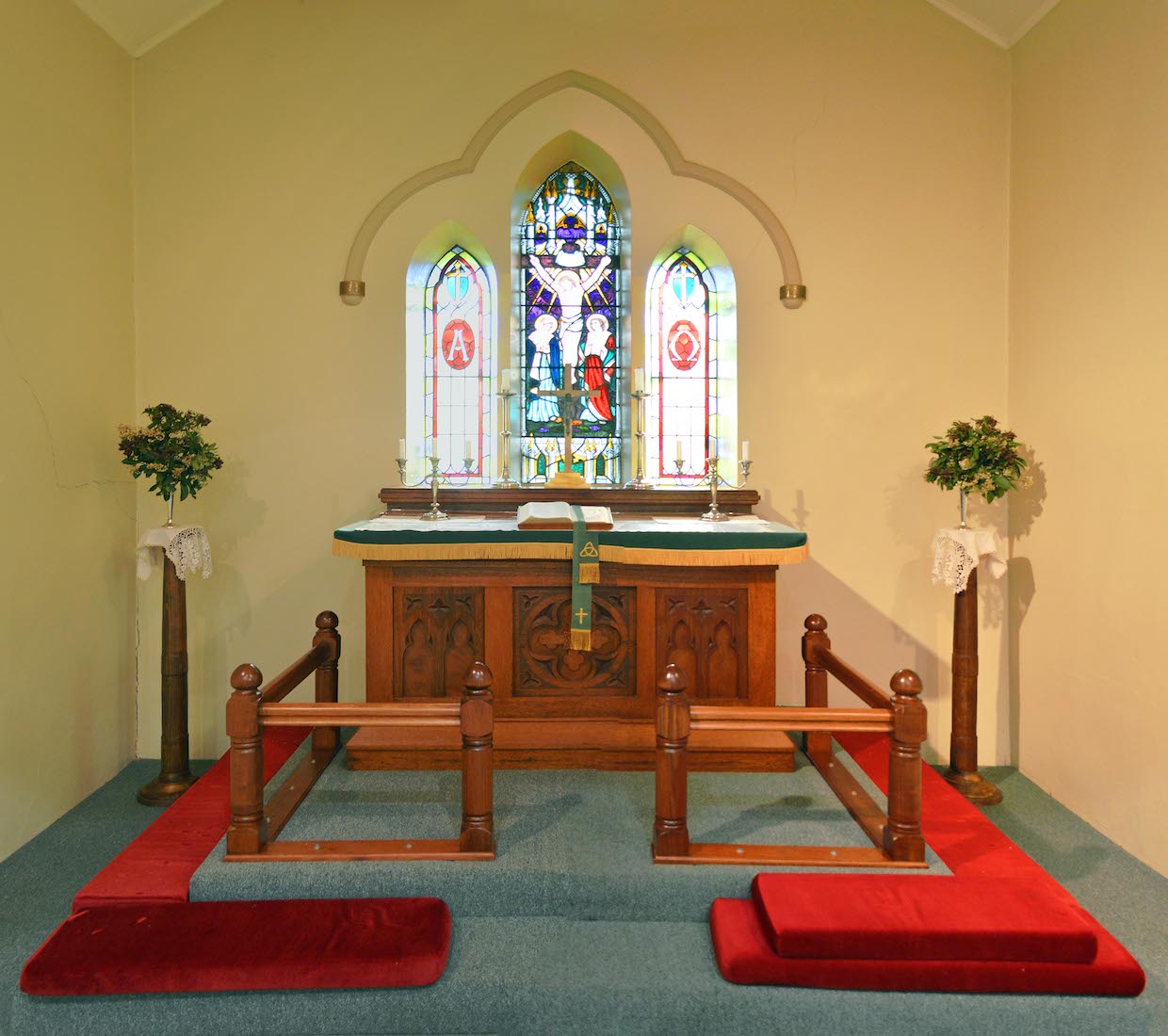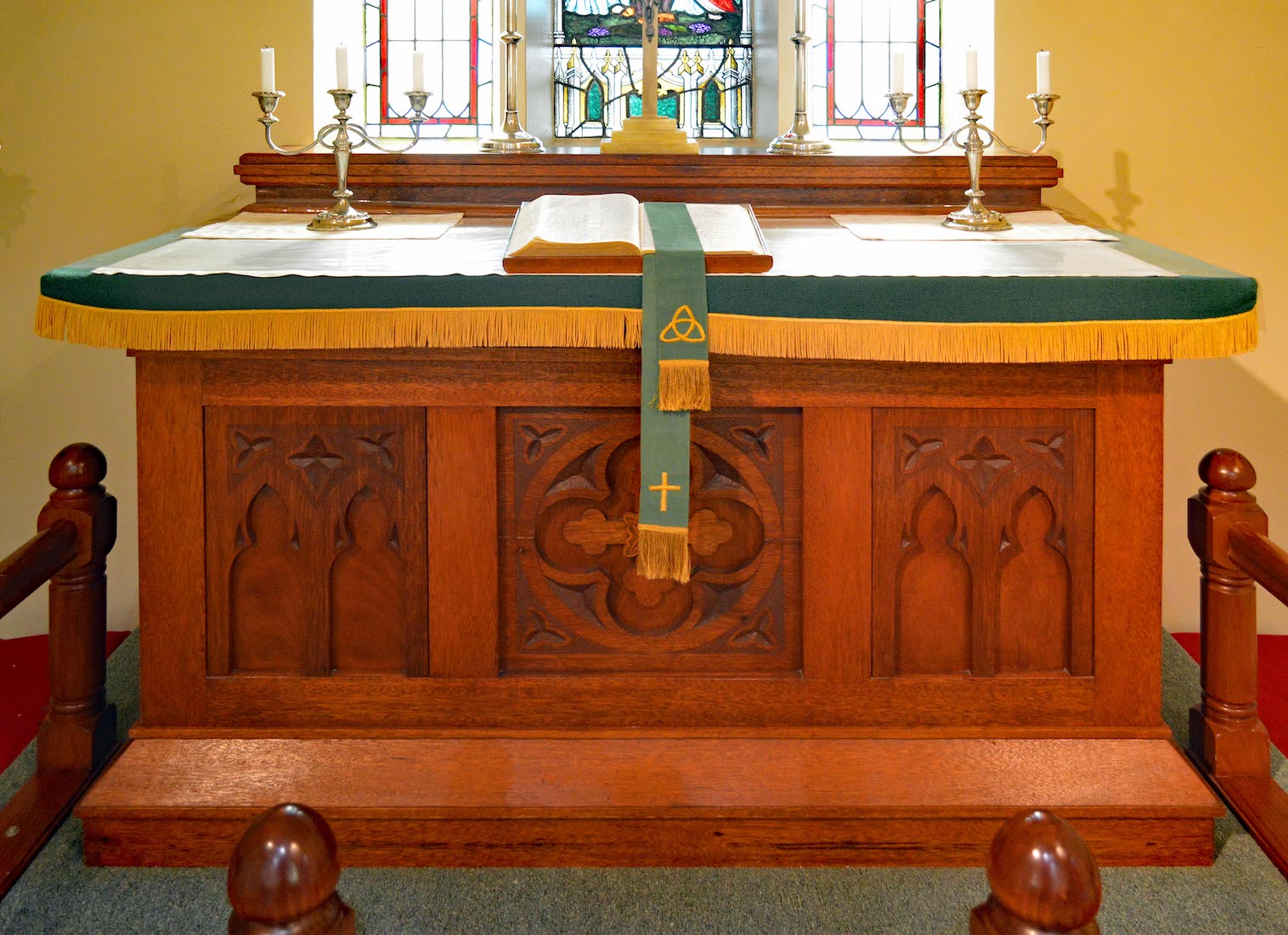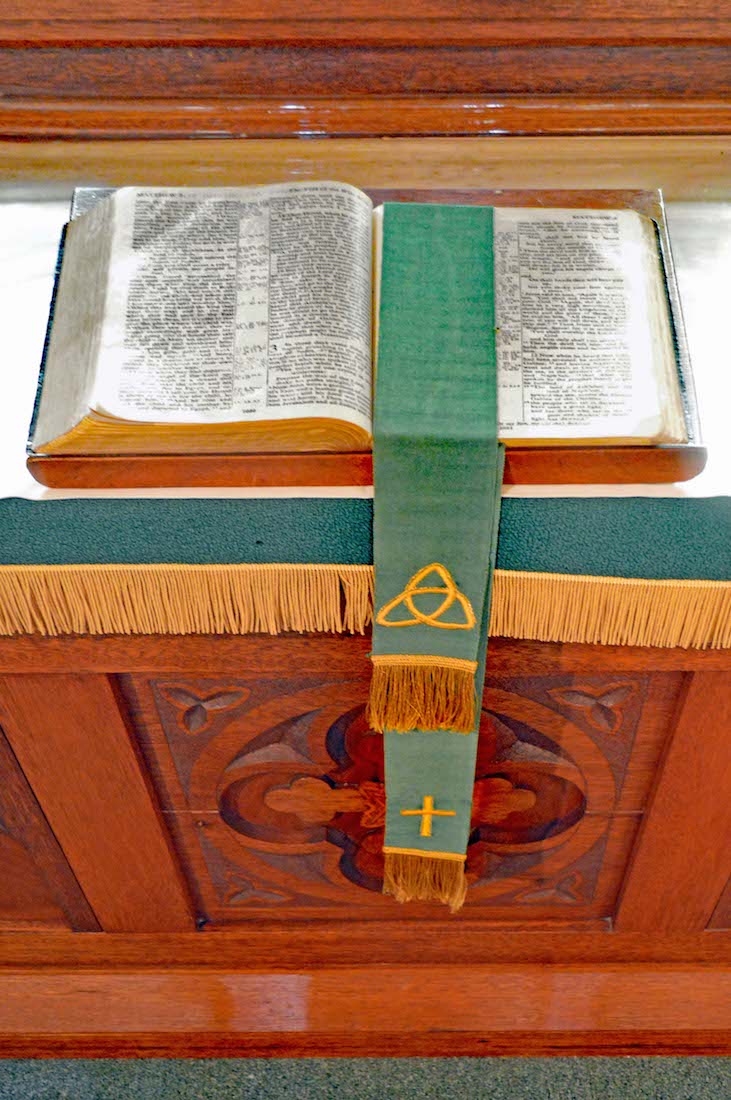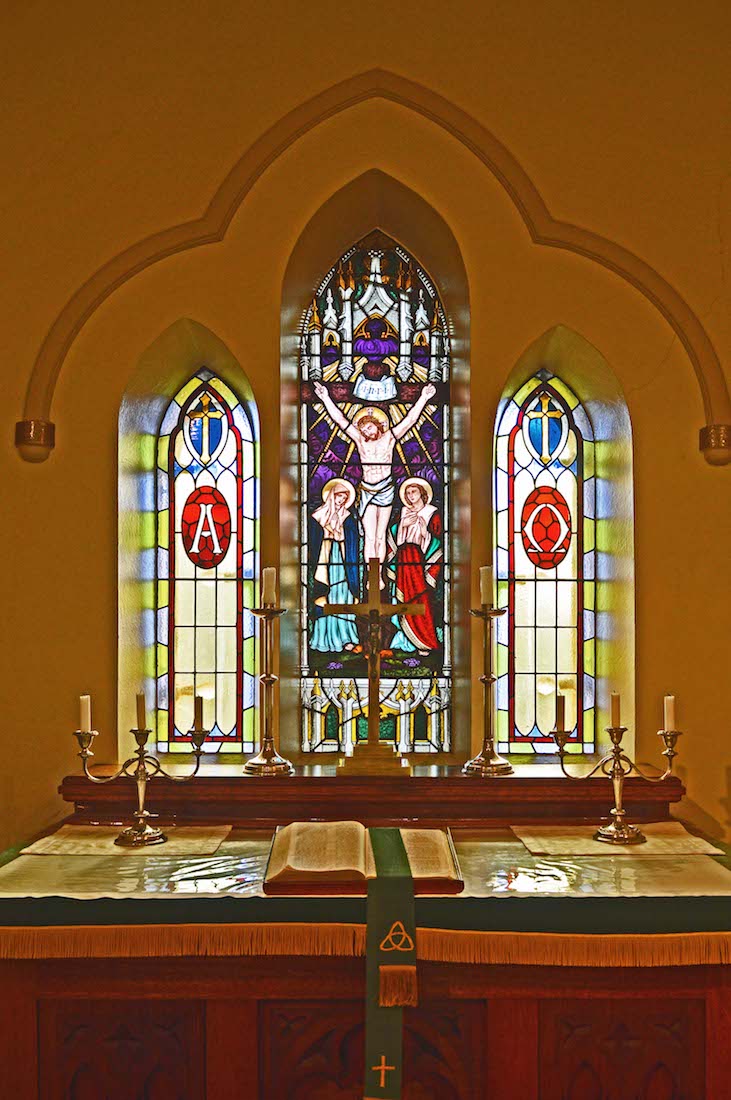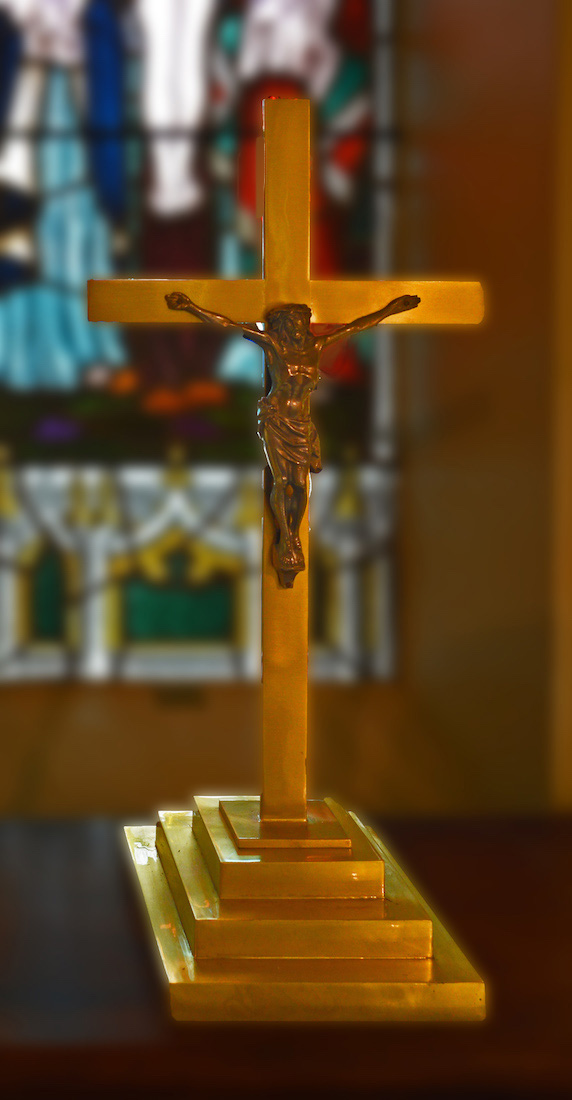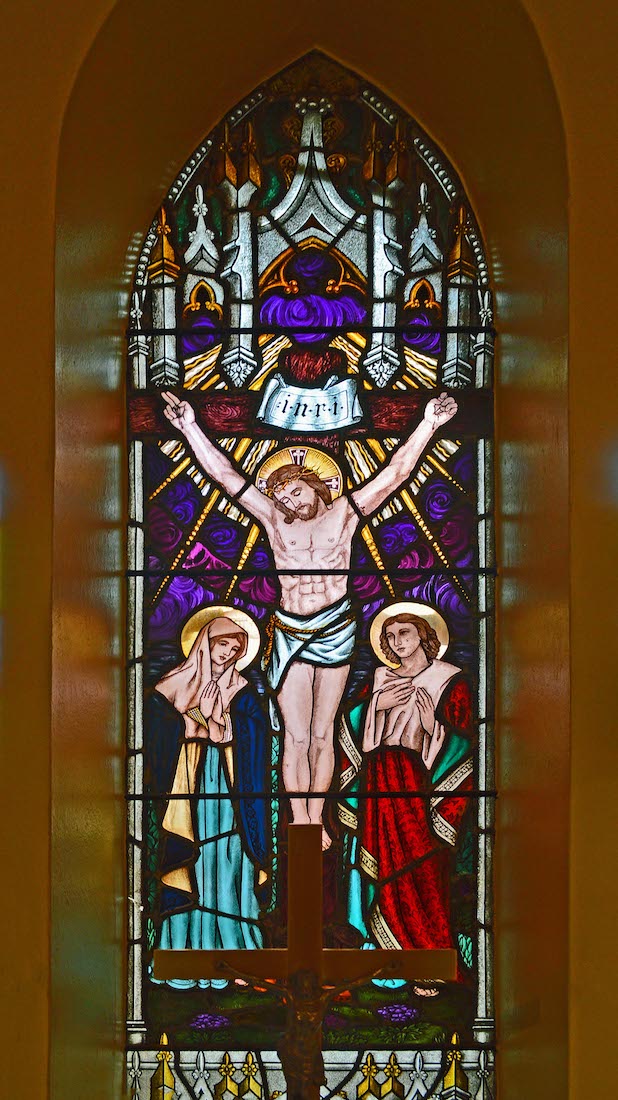22. FRONT NAVE
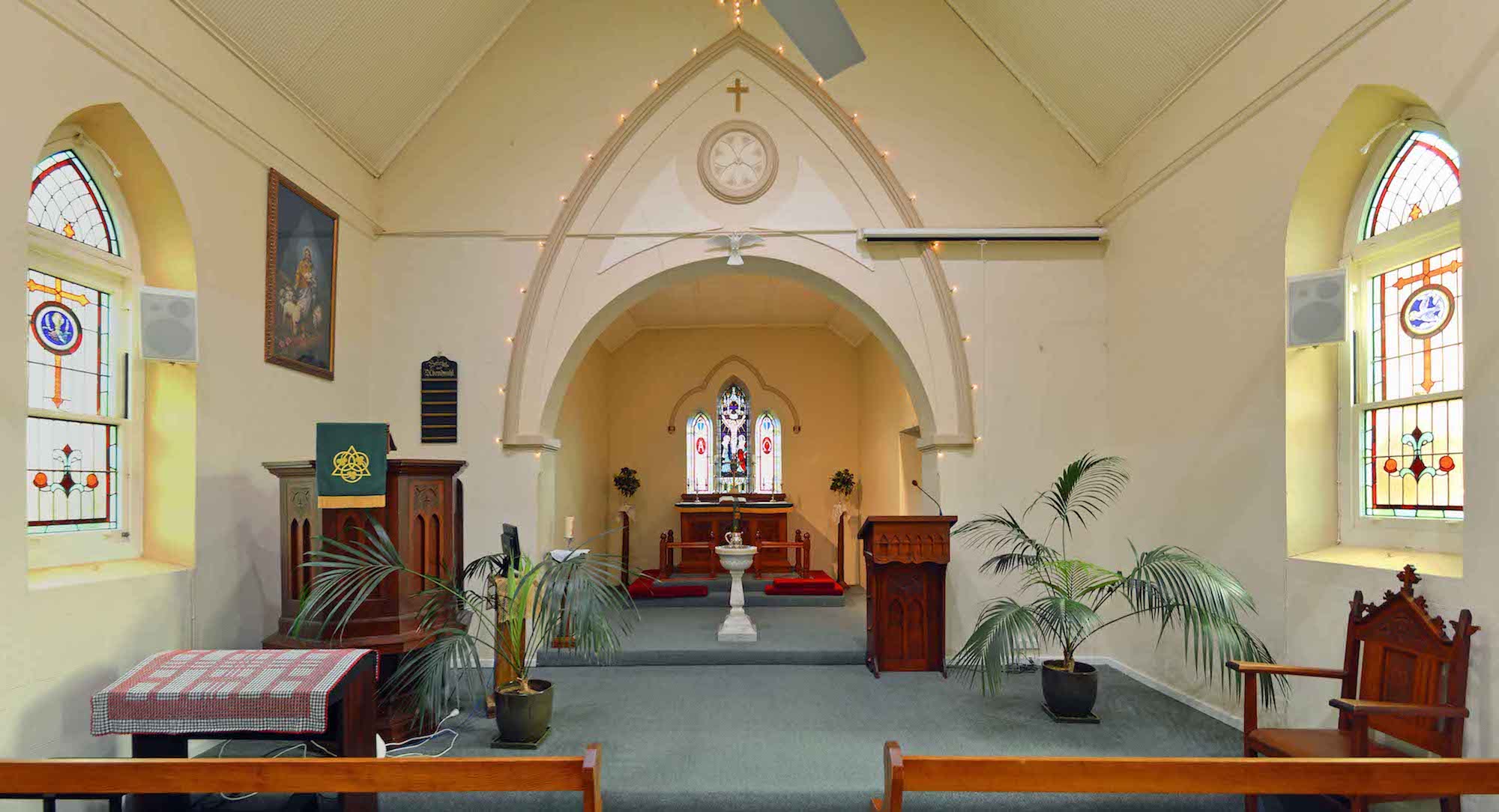
We shall look at the sanctuary shortly, but notice here the sanctuary arch with its little lights, and dove at the centre. Also, closer to us is the pulpit at left with a couple of wall items, the font at centre, and the lectern at right.
23. SANCTUARY ARCH
We have already commented on the little lights. The gable has a cross at the top, an eight-petalled decorative flower below, and a dove with outspread wings – an allusion to the Holy Spirit. The pointed Gothic arch was a great architectural discovery, as it supports a much greater weight than the older rounded Norman arch.
24. DOVE
The dove has come to have a dual meaning in Christianity. It is a symbol of the Holy Spirit, as in the reference at the Baptism of Jesus. It has also come to be regarded as a symbol of peace – perhaps a not unrelated meaning.
25. PULPIT
The attractive wooden pulpit stands in the front corner of the nave. It is from here that the Gospel is proclaimed week by week. The green and gold pulpit banner has a definite Trinitarian theme with its triangle, three circles, and three-leafed clover symbols.
26. GOOD SHEPHERD AND HYMN BOARD
Beside the pulpit is this attractive painting of Jesus as the Good Shepherd (Psalm 23:1). Behind is a board for hymn numbers with the text (in German), ‘Confession and Communion’. Hymn boards may not have a future in our churches, although they can also be used to show Scripture passages.
27. LECTERN AND CHAIR
The lectern and chair have a design which matches that of the pulpit. The lectern is where the Bible is placed for public reading. This special chair would be for the use of the celebrant in a worship service.
28. PASCHAL CANDLE AND FONT
The marble font with its silver jug is an expected item in these Lutheran churches. The text around the rim of the font is (in English!) the words of Jesus: ‘Suffer the little children to come to me.’ (Matthew 19:14). At left is the Paschal candle with the candle bearing the Chi-Rho symbol standing for ‘Christ’. The word ‘Paschal’ means passover, but also Easter. So the Easter candle represents the light of the risen Christ appearing at that first Easter.
29. SANCTUARY
Finally we focus our attention on the sanctuary with its East window and altar. The altar is almost surrounded by the altar rails: the place where the congregation comes and kneels to receive the Elements of the Eucharist.
30. ALTAR
The front of the altar has a budded cross at center, with a double imitation Gothic window on either side. We notice that it matches the pulpit and lectern in its design. Two candlesticks and an open Bible rest on the altar.
31. BIBLE
The open Bible is of great importance to Lutherans, and this is demonstrated by its position on the altar.
32. ALTAR AND WINDOW
The East window has three lancets: a central crucifixion scene, and the outer panels featuring the Alpha and Omega symbols. These are the first and last letters of the Greek alphabet and are used in Revelation 22:13 to describe Christ. The shelf below supports two further candlesticks and a crucifix.
33. CRUCIFIX
A key event in the Christian story is the crucifixion of Christ, and the doctrine of redemption through faith which follows from it. So we expect to find a crucifix in every Lutheran church.
34. EAST WINDOW
Staying with the crucifixion theme, directly behind the crucifix is the crucifixion scene of the central Eastern window. Jesus hangs on the Cross, and beneath stand his mother Mary, and John the Evangelist. The letters INRI at the top of the Cross refer to the sign ordered by Pilate: IESVS NAZARENVS REX IVDAEORVM (Iesus Nazarenus, Rex Iudaeorum), which in English translates to ‘Jesus the Nazarene, King of the Jews’ (John 19:19). This completes our tour of St Thomas’s Church.
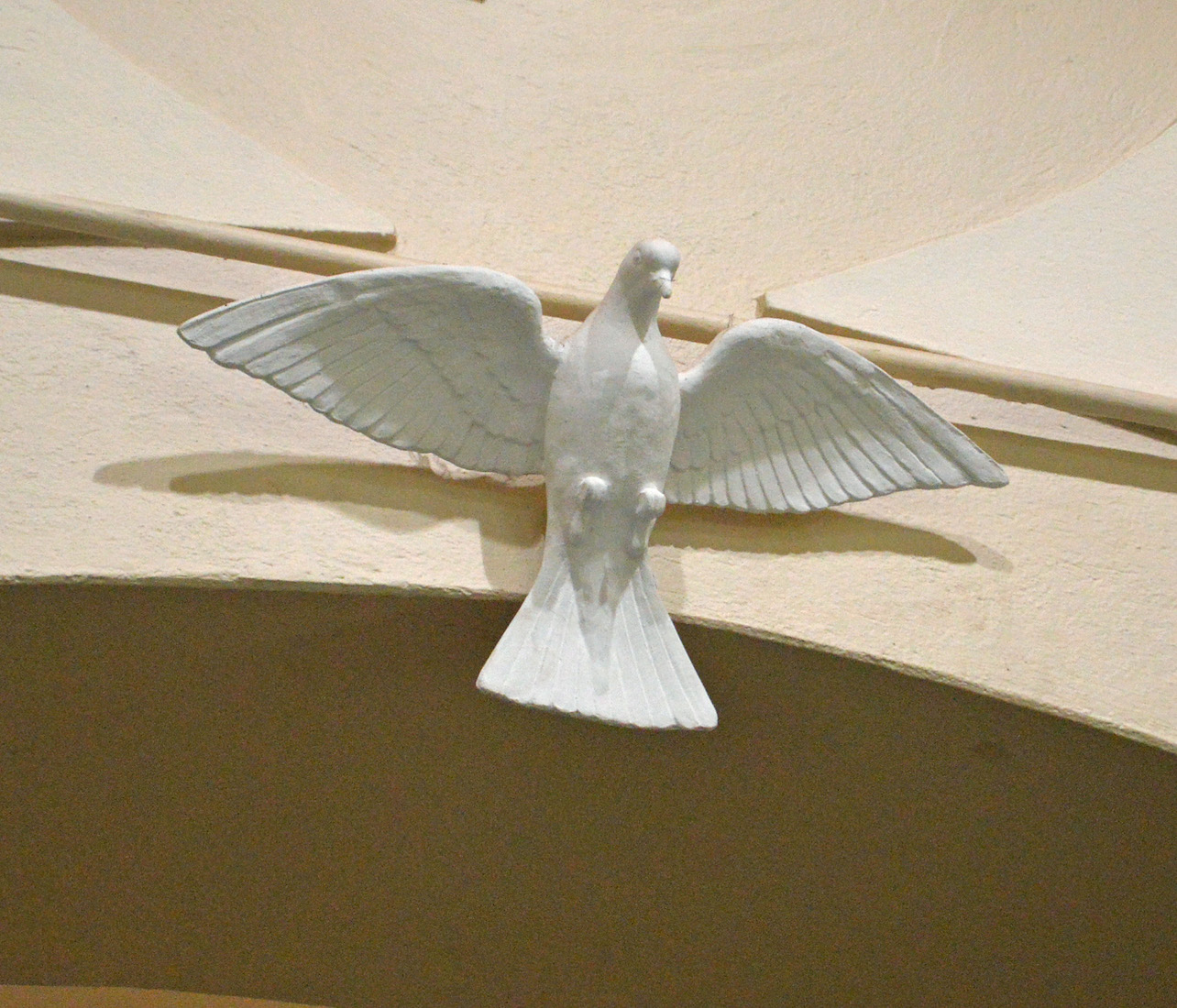
CONCLUSION
I hope you have enjoyed visiting St Thomas’s Lutheran Church with me. My sincere thanks to Pastor Mathew Ker who very kindly took the time to open his several churches for us!
I am very happy to receive any corrections or constructive comments about this site: the best websites are those which have no errors! I am grateful to my wife Margie who came with me and who has done much valuable proof reading.
With three acknowledged exceptions, the photos on this site are all mine, and can also be found in higher resolution at:
https://www.flickr.com/photos/paulscottinfo/albums/
I am grateful to Mark Quarmby of the Organ Historical Trust of Australia who gave permission for me to use photos on their site by Trevor Bunning. The Organ Trust’s website is
Contact details for St Thomas’s Church can be found on the Church’s minimal website
http://stockwell.lutheran.org.au/
Site created: 09 / 2020
Paul Scott


